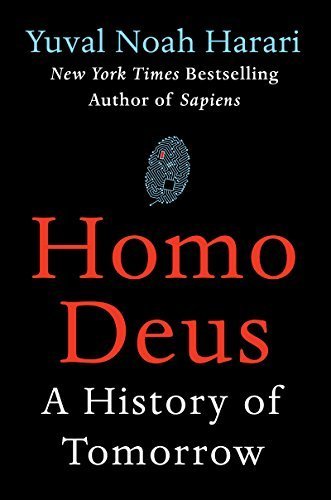
Reading
Book notes, the ones I have read
Takeaways, key concepts and learnings.
The Beginning of Infinity by David Deutsch
I am a strange loop by Douglas Hofstadter
Een simpel leven by Roderick Niewenhuis
Homo Deus by Yural Harari
ReadWriteOwn by Chris Dixon
Principles by Ray Dalio
The internet’s Lost Promise by Chris Dixon
Dixon argues that the early internet held immense promise as a decentralized, open network that empowered individuals and fostered creativity and entrepreneurship. However, this vision has been corrupted by the rise of powerful tech giants like Google, Facebook, and Amazon who have centralized control and extracted value from users.149This centralization of power goes against the internet's founding principles of openness and individual autonomy.
Reclaiming Ownership and Freedom
Blockchain technology, according to Dixon, offers a way to reclaim the internet's lost promise by enabling true ownership and control for users over their data, content, and digital assets. The "read-write-own" era facilitated by blockchains allows individuals to become stakeholders in online networks rather than being beholden to corporate gatekeepers.1 4 1 2This aligns with an idealist view of empowering individuals and communities over centralized authorities.
Democratizing Value Creation
Dixon envisions blockchain networks as ushering in a new era where value creation is democratized, and the economic upside is distributed to users and creators rather than being extracted by powerful middlemen.7 9 This resonates with Christian values of fairness, economic justice, and the dignity of human labor over the accumulation of wealth by a privileged few.
Restoring Trust and Integrity
The decentralized and transparent nature of blockchain networks can help restore trust and integrity to online systems by eliminating the need for centralized authorities to validate transactions or information.4 1 2 This aligns with idealist principles of truth and authenticity, free from the distortions and biases of powerful intermediaries.In summary, while "Read Write Own" explores the technical and business aspects of blockchain – reclaiming individual autonomy, democratizing value creation, restoring trust and integrity, and realizing the internet's original promise of empowering people over centralized powers. Dixon's work offers a hopeful path towards a more open, fair, and democratic digital future.1 4 7 9 1 2
The Beginning of Infinity by David Deutsch
David Deutsch's worldview centers on the comprehensibility of reality, underscored by four fundamental, interdependent disciplines: quantum physics, epistemology, evolution, and computation. These disciplines collectively explain the universe's capacity to understand itself through human knowledge creation.
Quantum Physics: The foundational language of physics, essential for understanding the physical universe.
Epistemology: The study of knowledge acquisition, emphasizing that knowledge must be useful and self-sustaining.
Evolution: Explains how natural processes, like genes and ideas, persist over time, highlighting the concept of emergence for understanding life and knowledge creation beyond mere physical definitions.
Computation: Asserts that information processing is independent of the material, positing that any physical reality, including the human brain and tools, can simulate the universe.
These theories are intricately linked, with computation and the evolution of ideas marking humanity's journey towards infinite knowledge and its significant impact on the universe. Deutsch emphasizes the efficiency and potential of human knowledge creation, contrasting it with the slow pace of biological evolution.
Deutsch's philosophy advocates for optimism, placing human capability for understanding and explanation at the core of existence. He extends this optimism to knowledge creation, viewing problems as solvable given sufficient knowledge. This view is an extension of Popper's theory that knowledge creation precedes observation and requires critical and creative thought.
Deutsch criticizes philosophies that hinder knowledge growth, such as empiricism and instrumentalism, and explores the evolution of ideas through competition and selection, similar to biological evolution. This dynamic has transformed societies, especially since the Enlightenment, fostering environments where critical and creative faculties thrive.
Additionally, Deutsch addresses limitations in mathematics, suggesting that proofs and theories are subject to evolution and reinterpretation. He also discusses the multiverse concept, challenging traditional physics with the idea that parallel universes explain quantum phenomena.
Random insights from Deutsch include the concept of universality, where systems gain universal functionality suddenly, and critiques of utilitarianism, arguing it's circular and lacks substantive truth.
Key Takeaways:
Reality is understandable through quantum physics, epistemology, evolution, and computation.
Human knowledge creation is central to understanding and transforming the universe.
Knowledge evolves through critical and creative processes, overcoming limitations and solving problems.
Societies evolve by fostering creativity and criticism, moving away from conformity and dogma.
The multiverse concept and critiques of traditional philosophies and mathematics underline the importance of open, critical exploration of reality.





